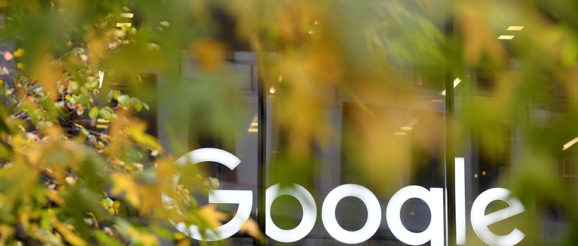Google says Singapore’s fake news law may hurt innovation

SINGAPORE
Google said on Thursday an anti-fake news law passed by Singapore’s parliament could stunt innovation, a quality that the city-state wants to nurture under plans to expand its tech industry.
Singapore’s parliament on Wednesday passed the Protection from Online Falsehoods and Manipulation Act, a law criticized by rights groups, journalists and tech firms over fears it could be used to clamp down on freedom of speech.
The passage of the law comes at a time when Singapore, a financial and transport hub, has been making efforts to position itself as regional center for digital innovation.
Google said the law could hamper those efforts.
“We remain concerned that this law will hurt innovation and the growth of the digital information ecosystem,” the company said in response to a query from Reuters.
“How the law is implemented matters, and we are committed to working with policymakers on this process.”
The law will require online media platforms to carry corrections or remove content the government considers to be false, with penalties for perpetrators running as high as prison terms of up to 10 years or fines up to S$1 million ($735,000).
The law minister has said the bill will not affect free speech. Singapore says it is vulnerable to fake news because of its position as a global financial hub, its mixed ethnic and religious population and widespread internet access.
“We remain concerned with aspects of the new law which grant broad powers to the Singapore executive branch to compel us to remove content they deem to be false and to push a government notification to users,” Simon Milner, Facebook’s Asia-Pacific vice-president of public policy, said.
Milner said Facebook hoped that the ministry’s reassuring statements led to a “proportionate and measured approach in practice”.
Facebook and Singapore clashed late last year when the company refused to remove a post of an online article about the city-state’s banks and Malaysia’s scandal-linked 1MDB state fund, that the government said was “false and malicious.”
A running feud between Prime Minister Lee Hsien Loong and his brother and sister over the will of their late father, Singapore’s first prime minister Lee Kuan Yew, has also played out over Facebook since it first erupted in public in 2017.
The prime minister’s siblings have used the social media platform to give their side of a row that disturbed the normally calm politics of a country that has been led by the same party since its independence in 1965.
Activists are concerned that the law could give the government power to decide if material posted online is true or false.
“Singapore’s leaders have crafted a law that will have a chilling affect on internet freedom throughout Southeast Asia,” Phil Robertson, deputy Asia director of Human Rights Watch, said in a statement.
“(The law will) likely start a new set of information wars as they try to impose their narrow version of ‘truth’ on the wider world.”
Asia Internet Coalition, having previously criticized the bill for the new law, said that its members are committed to work with the Singapore government on the law’s implementation.
“The Asia Internet Coalition reaffirms our members’ commitment to continue engaging with the Singapore government and to collaborate with all stakeholders to address the issue of deliberate online misinformation,” managing director Jeff Paine said.
Reuters
The post Google says Singapore’s fake news law may hurt innovation appeared first on The Bruneian.
